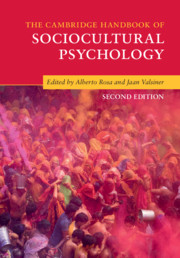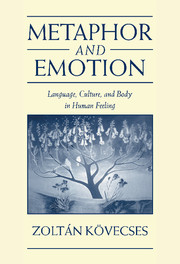Collective Remembering and the Making of Political Culture
Collective memory can make and break political culture around the world. Representations and reinterpretations of the past intersect with actions that shape the future. A nation's political culture emerges from complex layers of institutional and individual responses to historical events. Society changes and is changed by these layers of memory over time. Understanding them gives us insight into where we are today. Encompassing examples from colonization and decolonization, revolving around the critical junctures of the world wars, this book illustrates how collective memory is produced and organized, through commemoration, through monuments, and through individuals sharing stories. Using concrete examples from around the world, James H. Liu shows how different disciplines can come together through shared concepts like narratives and generational memories to provide mutually enriching perspectives on how political culture is made, and how it changes.
- Connects psychological perspectives on collective remembering with the making of political culture around the world
- Introduces the philosophy of science required to understand the history and evolution of human societies
- Based on real-world examples ranging from the USA to China
Reviews & endorsements
‘Building on a lifetime of work, James Liu presents a penetrating exploration of the ways in which collective memories serve as symbolic resources for understanding and interpreting the complex world we live in. He carefully and insightfully demonstrates how the study of collective memory can help us understand the more perplexing crises of our day. A must-read for any student of collective memory, or, indeed, for anyone interested in history and politics.’ William Hirst, Malcolm B. Smith Professor of Psychology, The New School for Social Research, USA
‘‘Memory is at once a language and a map, a reflector of and guide for the present’ (Schwartz, 1996). James Liu’s book presents a comprehensive overview of research on collective remembering, brilliantly bridging bottom-up (psychological) and top-down (societal) approaches. In the process, he offers nothing less than a theory of political culture and social change, which he applies to three case studies: China-US relations, colonization and decolonization processes, and the COVID-19 pandemic.’ Laurent Licata, Professor of Social and Cultural Psychology, Université libre de Bruxelles, Belgium
‘This book is an example of a social psychology with a humanistic face mixed with quantitative methodologies. In a brilliant tour de force, philosophers like Baskhar dialogue dialectically with thinkers like Moscovici, Assman, and Nora. It examines the content and functions of collective memory, based on a research program on the social representations of history, combining statistical analysis with dense descriptions of collective memory cases from America, Asia, and Africa.’ Dario Paez, Professor of Social Psychology, Basque Country University, Spain
‘This is an outstanding volume. Liu has spent a lifetime investigating issues in collective memory, and he provides a rich discussion of both his own work and that of other leading scholars. He relates his studies on how people remember history across many countries to politics, showing how they mutually influence one another. Any student of collective memory or politics will learn much from this book. I highly recommend it.’ Henry L. Roediger III, James S. McDonnell Distinguished Professor, Washington University, USA
‘What a thought-provoking and timely volume! James Liu takes a bird’s-eye view of the study of collective memory in diverse approaches and disciplines. His critical analysis of cases and data across many nations demonstrates that collective remembering, whether authored by institutions or individuals, is a motivated act deeply conditioned by cultural factors while shaping political culture through connecting the past, present, and future.’ Qi Wang, author of The Autobiographical Self in Time and Culture
‘This is a major contribution to memory studies. In addition to laying out a cutting-edge conceptual framework for the study of collective memory, Liu draws on extensive data sets to provide sophisticated interpretations of several real-world memory projects. It will be a major resource for scholars and policy analysts for years to come.’ James V. Wertsch, David R. Francis Distinguished Professor, Washington University, USA, and author of How Nations Remember: A Narrative Approach
Product details
February 2024Paperback
9781108984737
274 pages
229 × 151 × 15 mm
0.4kg
Available
Table of Contents
- Part I. Introduction to Collective Remembering:
- 1. The rise of research on collective remembering
- 2. Top-down approaches to collective remembering
- 3. Bottom-up approaches to collective remembering
- Part II. Developing a Theoretical Approach to Collective Remembering:
- 4. The organization of collective memory
- 5. Social representations of world history as a symbolic resource: content informs process in future making
- 6. Historiography and human agency: collective memory as history, and history in collective remembering
- 7. A dialectical approach to collective remembering
- Part III. Idiographic Case Studies of Collective Remembering:
- 8. China and the United States of America: going beyond the Thucydides trap
- 9. Colonization and decolonization in Israel-Palestine and Aotearoa-New Zealand
- 10. The COVID-19 pandemic and the reciprocal relationship between past, present, and future.




